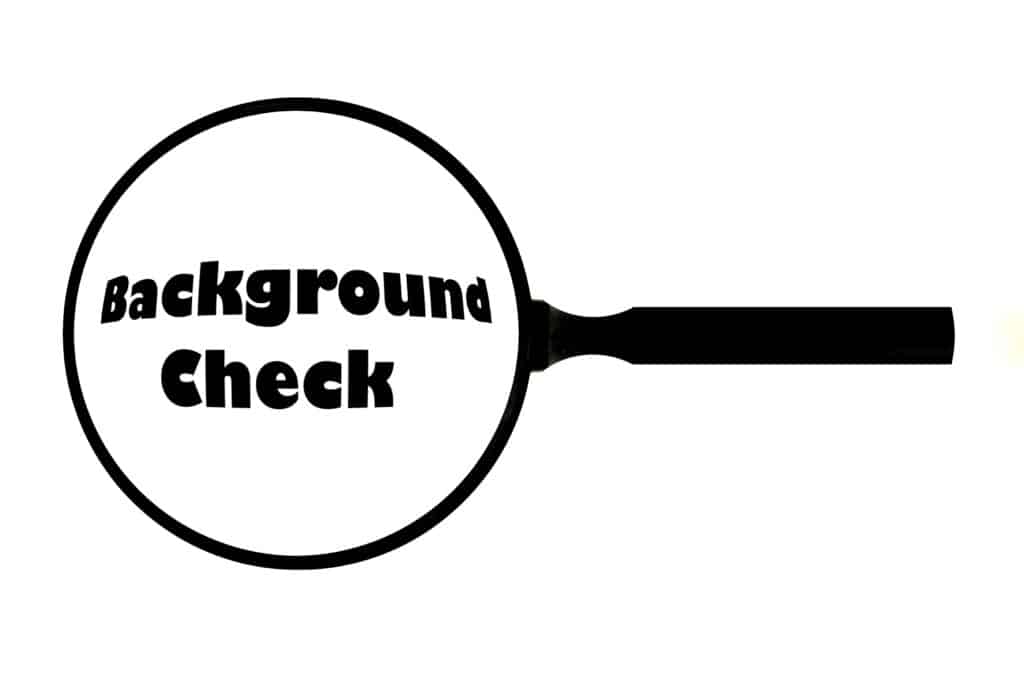
When it comes to hiring new employees, it is extremely important for any business to understand the requirements for background checks in Texas and prioritize the crucial step of conducting comprehensive screenings. In the state of Texas, these background checks are not only vital for ensuring the safety and security of your esteemed company, but also for complying with legal obligations in certain industries. In the following sections of this informative article, we will delve deeper into the essential nature of background checks in Texas and the wide range of industries that are unequivocally required to carry out these thorough investigations.
Why are background checks important?
Why are background checks important? Recognizing the paramount importance of ensuring the safety and security of their valued employees and esteemed customers, businesses across all industries understand the need to prioritize comprehensive background checks. These checks play a crucial role in verifying and validating essential information provided by potential employees, such as their educational background, work history, and any potential criminal record. By conducting thorough background checks, businesses can make informed hiring decisions, mitigate risks associated with potential misconduct or fraudulent activity, and foster a safe and trustworthy environment for everyone involved. By conducting thorough vetting processes, businesses can proactively prevent the hiring of individuals who may pose a significant threat to the company and its employees. Additionally, these background checks serve as a protective measure, safeguarding businesses from potential legal complications that may arise if employees are not properly screened. By ensuring that all necessary qualifications are met and that candidates have no history of disreputable or criminal behavior, businesses can effectively protect their pristine reputation.
What is a Texas Background Check
A Texas background check is a thorough and all-encompassing investigation into an individual’s personal, professional, and criminal history, taking into account a myriad of important aspects and details. This intricate process involves meticulously verifying and cross-referencing various types of information, including but not limited to employment history, educational background, credit history, and criminal records. The overarching objective behind conducting a Texas background check is to meticulously assess and evaluate the suitability, integrity, and overall trustworthiness of an individual for a specific job or position. By delving deep into an individual’s background, employers are enabled to make informed and prudent decisions, thereby ensuring not only the profitability and productivity of their organization, but also the paramount safety and security of all its members and stakeholders.
How Far Back Does a Background Check Go in Texas
In Texas, there is no set time limit for background checks. The depth and duration of the check depend on the industry and employer requirements. Typically, background checks cover at least seven years, the standard timeframe for criminal records. However, industries like healthcare and education may have stricter requirements. Employers decide how far back to check, considering the need for thorough vetting and legal limitations.
Industries that require background checks in Texas
In the state of Texas, there are specific industries that are obligated to follow legal requirements by conducting thorough background checks on their employees. These industries encompass various sectors, and they entail:
- Education: Every single individual employed in both public and private schools, ranging from teachers and administrators to support staff, is mandated to undergo a comprehensive background check. This ensures the safety and wellbeing of students within the educational environment.
- Healthcare: Employees within the vast healthcare industry, including doctors, nurses, and other medical professionals, are compelled to undergo a rigorous background check. This measure is implemented to guarantee the reliability and competence of healthcare providers.
- Childcare: Individuals working in childcare facilities, which encompass teachers, caregivers, and even volunteers, are subject to extensive background checks. This procedure is put in place to assure the utmost safety and security of young children who are entrusted under their care.
- Law Enforcement: All individuals holding positions within law enforcement, namely police officers, sheriffs, and state troopers, are required to go through a meticulous background check. This precautionary measure is intended to uphold the integrity and trustworthiness of law enforcement agencies.
- Financial Services: Professionals operating within the financial services sector, such as bankers, brokers, and financial advisors, are mandated to undergo comprehensive background checks. This is done to ensure the credibility, integrity, and reliability of individuals entrusted with managing finances and providing financial advice and services.
Jobs that don’t require background checks in Texas
Certain industries in Texas are legally obligated to conduct background checks on their employees. However, it is important to note that there are also job positions in the state where background checks are not mandatory. Nevertheless, The Screening Source, a highly reputable firm, strongly advises all employers to carry out thorough background checks on their employees as a proactive measure to safeguard their interests. It is crucial for employers to prioritize this practice to ensure the safety and security of their businesses. Some of these jobs that do not necessarily require background checks include:
- Retail: In the retail sector, background checks are generally not a prerequisite for most job positions, unless the employee is going to be entrusted with handling cash transactions or sensitive information. While it may not be a legal mandate, it is still essential for employers to exercise caution and carry out background checks to prevent any potential risks or losses.
- Food Service: Similarly, the food service industry in Texas does not have a stringent requirement for background checks for most jobs, unless the employee will be responsible for serving alcohol. However, considering the nature of this industry and the potential impact an employee’s actions can have on the business, it is strongly recommended that employers conduct background checks to ensure the trustworthiness and reliability of their staff members.
- Construction: Background checks are generally not obligatory for most construction jobs in Texas unless the employee will be involved in projects funded by the government. However, it is crucial for employers to exercise caution and discretion when it comes to hiring employees, as the construction industry entails various risks and potential liabilities. While a legal requirement may not exist, conducting background checks can help mitigate any potential issues and ensure the overall safety and success of construction projects.
- Technology: In the rapidly growing technology industry, background checks are typically not a mandatory requirement for most job positions, unless the employee will be dealing with sensitive information or working under government contracts. However, given the sensitive nature of technology-related roles and the potential impact of security breaches, it is strongly recommended that employers take the initiative to conduct comprehensive background checks on their employees. This will not only safeguard the company’s data and intellectual property but also foster a secure working environment.
How to conduct a background check in Texas
How are background checks done? In Texas, employers conduct background checks by adhering to the regulations outlined in the Fair Credit Reporting Act (FCRA). This involves obtaining written consent from potential employees before initiating the background check process. Employers must also furnish a copy of the report to the employee, ensuring transparency and compliance with FCRA guidelines. By following these steps, employers in Texas ensure that background checks are conducted responsibly and ethically, respecting the rights and privacy of individuals involved. Furthermore, if any adverse action is taken as a result of the background check, employers must adhere to proper procedures as outlined by the FCRA. Fortunately, The Screening Source is available to assist employers in effortlessly navigating these necessary procedures, ensuring a smooth and efficient background check process.
When it comes to the hiring process in Texas, background checks play a crucial and essential role. They not only protect the well-being and security of your company but are also legally required in certain industries. By conducting thorough and meticulous background checks, businesses can effectively safeguard themselves and their employees from potential risks and liabilities that may arise from hiring individuals without a comprehensive understanding of their past. The significance of background checks in establishing a secure working environment cannot be overstated. By adhering to the regulations set by the FCRA, businesses can ensure compliance and have peace of mind. To learn more about understanding background checks in Texas, visit the Texas Department of Family and Protective Services.
Understanding Criminal Records
Criminal background checks are usually conducted by third-party screening companies or directly by employers. They involve searching various databases, including county, state, and federal records, as well as databases maintained by law enforcement agencies.
Yes, in Connecticut, certain criminal records are considered public information. However, access to these records may be subject to restrictions based on the nature of the offense, the age of the offender, or other legal considerations. Some records may also be sealed or expunged under certain circumstances.
How to run background checks
Background checks are typically conducted by searching various databases and public records for information about an individual’s criminal history, employment history, credit history, and more. This process may involve accessing court records, credit reports, driving records, and other sources of information.
Background checks help employers make informed hiring decisions by verifying the accuracy of a candidate’s credentials, ensuring workplace safety, and minimizing the risk of negligent hiring lawsuits.
